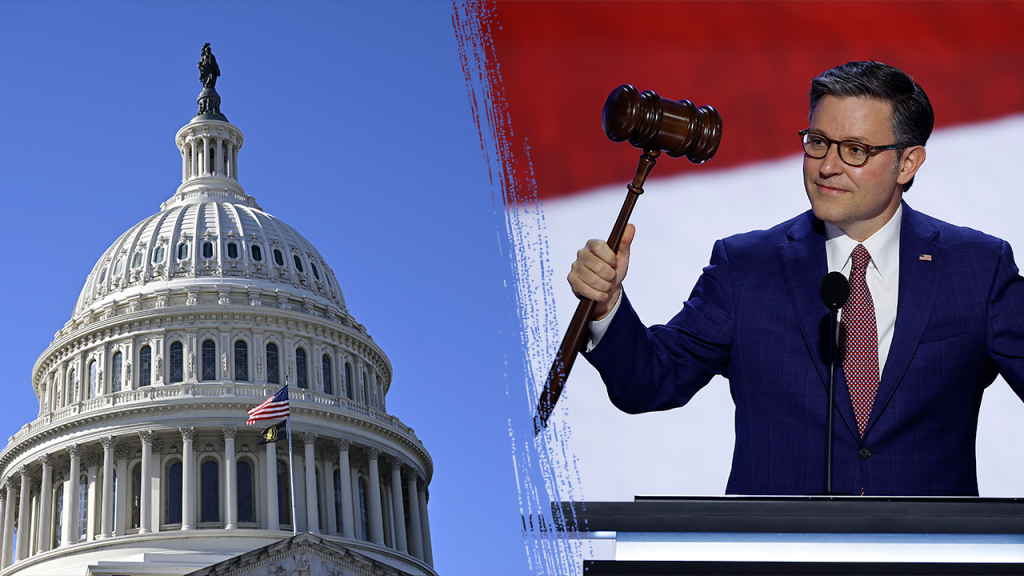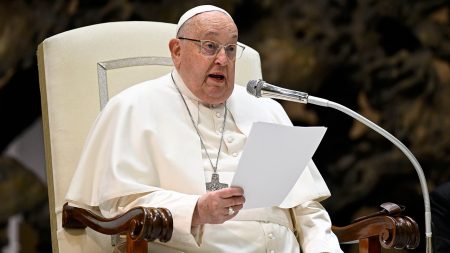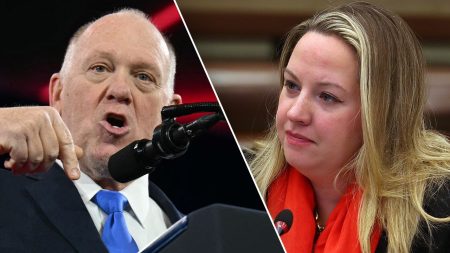Paragraph 1: A Smooth Transition of Power in the House
The House of Representatives witnessed a seamless transition of power as Representative Mike Johnson secured his re-election as Speaker in a swift first-round vote on Friday. This marked a stark contrast to the protracted speaker selection process that preceded the 118th Congress, when former Speaker Kevin McCarthy endured 15 rounds of voting before claiming the gavel. The swiftness of Johnson’s re-election was met with widespread celebration among House Republicans, many of whom took to social media to express their enthusiasm and highlight the party’s unity.
Paragraph 2: Expressions of Support and Legislative Priorities
The successful vote ignited a wave of congratulatory messages from prominent Republican figures. House Majority Leader Steve Scalise expressed his excitement and anticipation of working with President Trump to advance the "Make America Great Again" agenda. House Majority Whip Tom Emmer echoed this sentiment, emphasizing the party’s commitment to tackling key issues such as economic revitalization, border security, energy independence, and tax reduction. These statements underscore the Republican Party’s focus on implementing its legislative priorities under Johnson’s leadership.
Paragraph 3: Initial Uncertainty and Eventual Consolidation
Despite the eventual outcome, the initial stages of the speaker vote were marked by a degree of uncertainty. Representatives Keith Self of Texas and Ralph Norman of South Carolina initially cast their votes for alternative candidates, raising concerns about Johnson’s ability to secure the necessary majority. However, both representatives ultimately switched their votes to Johnson before the final tally, paving the way for his smooth re-election. This last-minute shift underscored the behind-the-scenes negotiations and maneuvering that often accompany such crucial votes.
Paragraph 4: Overcoming Internal Divisions and the Freedom Caucus’ Role
A significant element of the vote centered on the actions of the conservative House Freedom Caucus (HFC). Several HFC members, including Reps. Andy Biggs, Michael Cloud, Andrew Clyde, Paul Gosar, Andy Harris, Chip Roy, and Mike Waltz, initially withheld their votes, creating suspense and potentially jeopardizing Johnson’s speakership. However, to the surprise of many, these representatives ultimately cast their votes in favor of Johnson, demonstrating a surprising degree of unity within the party.
Paragraph 5: The Influence of President Trump and the HFC’s Conditions
The HFC’s decision to support Johnson was explicitly linked to their commitment to President Trump’s agenda and the timely certification of his electors, as stated by HFC Chairman Andy Harris. Rep. Scott Perry, a prominent HFC member, emphasized that their support was conditional, outlining specific policy goals they expect Johnson to pursue. These included securing the southern border, implementing responsible House rules, curbing federal spending, deregulation, reversing certain Biden administration policies, and enacting a congressional stock trade ban. This highlights the ongoing negotiation and power dynamics within the Republican party and the influence wielded by the HFC.
Paragraph 6: Looking Ahead: A Focus on the Republican Agenda
The re-election of Speaker Johnson sets the stage for the House to address the Republican Party’s legislative priorities. With a renewed sense of unity, Republicans are poised to tackle key issues, including economic reform, border security, and energy policy. The HFC’s explicit conditions for supporting Johnson suggest that these issues will be at the forefront of the legislative agenda. The focus on aligning with President Trump’s agenda further underscores the influence he continues to wield within the party and the ongoing effort to consolidate Republican support around his vision.










